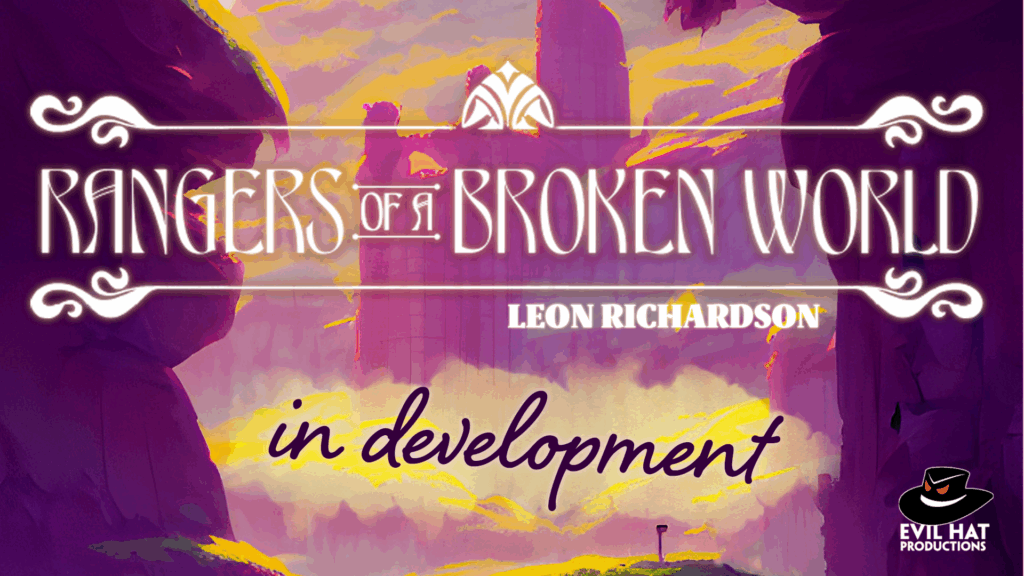Welcome to the fifth post in a series of Design Diaries for Rangers of a Broken World by the creator Leon Richardson:

…
I’m Canadian, so when I think “survival challenge” I don’t need to look much further than my own region. One of the first classes to materialize in Rangers of a Broken World was the Enduring Legionnaire, champion of the tundra.
Anyone who knows me also knows I’m a sucker for a tragic knight. I’ve written an entire solo game about it. My favorite Final Fantasy song is “Roses of May”. Put a person in armor, give them a sword and some conflict, and I’m all over it.
The combination of these two ideas made the Legionnaire obvious to me. They became Amylte’s last army, whose enemy is no longer other people but the world’s memories of war, suffering, and cruelty, the Horrors. The setting of this battle would be the tundra, where the physical conditions are just as dangerous as the enemy. The survival specialty “Brilliant Snow” was meant to represent a resistance to the glare from the snowfields, and has gone through three revisions but never been removed.
Much later in development, when I realized every Ranger needed an assist ability (in the beginning it was only the Arcanist and the Cavalier), the final touch came to me. One of the themes of Rangers of a Broken World is the pointlessness of war, so I decided to give the Legionnaire a tragic edge.
I decided to formalize the deep bond between the living and the dead among Legionnaires, who more than anyone understand the pain and suffering of war. This touch changed the Legionnaire from an ice paladin to an icy necromancer-knight, a heroic take on a usually villainous archetype. I don’t think there’s anything particularly evil about feeling a respect for and even a kinship with the dead!
Enduring Gaius is named for Gaius Julius Caesar, which is why he is the patron deity of the most warlike class. This Deilith is a marble pillar in an underground labyrinth, one beginning to crumble under the strain of a cruel world. The question is not whether Gaius will fall apart (that’s for your table, after all!) but what that will mean for a still-fragile world.
